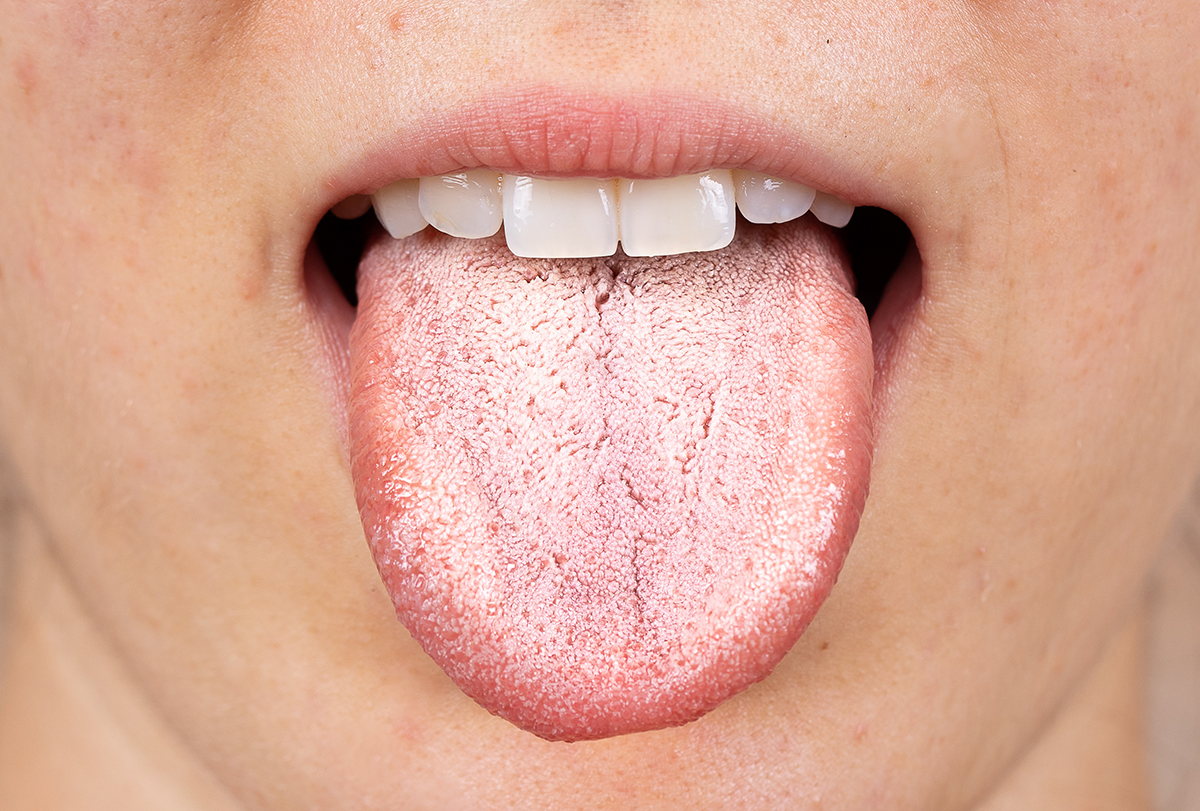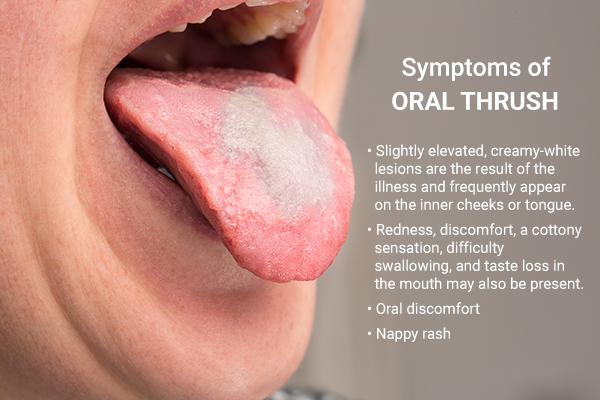In this article:
Oropharyngeal candidiasis, sometimes referred to as oral thrush, is a form of yeast infection that appears on the tongue and the inside of the mouth. It is common in babies and the elderly with dentures.

The causative agent, the Candida albicans fungus, is often found in relatively small amounts in the mouth, and good oral hygiene keeps it at bay.
Causes and Spread of Oral Thrush
Oral thrush is a fungal infection of the mouth and is brought on by an overgrowth of the yeast Candida albicans. In the mouth, candida is typically present in minute numbers, but an overgrowth may happen for a variety of reasons, including:
- Immune system weakness: Individuals with previously compromised immune systems, for example, people who have HIV/AIDS, cancer, or diabetes, are more likely to acquire oral thrush.
- Medication: Certain treatments, including antibiotics, corticosteroids, and chemotherapy agents, might disrupt the normal balance of bacteria in the mouth and facilitate the growth of candida.
- Unsatisfactory oral hygiene: Failure to practice good oral hygiene, which includes frequent brushing and flossing, can result in the accumulation of plaque and other germs in the mouth, which favors the growth of candida.
- Dry mouth: Saliva helps to keep the mouth wet and flush out germs and other microbes. When saliva production decreases, as it does in persons with Sjogren’s syndrome or as a side effect of several drugs, the mouth becomes dry and more prone to oral thrush. (1)
- In adults, oral thrush is not contagious. However, babies can pass oral thrush through breastfeeding, (1) causing nipple thrush in mothers. Visit a doctor immediately if the age of your baby is under 4 months.
Symptoms Indicative of Oral Thrush

- Slightly elevated, creamy-white lesions are the result of the illness and frequently appear on the inner cheeks or tongue. It may spread to the tonsils, gums, roof of the mouth, or back of the throat if it is not promptly treated.
- Redness, discomfort, a cottony sensation, difficulty swallowing, and taste loss in the mouth may also be present. (2)
- Oral discomfort (for example, a sore tongue or sore gums) is present. Occasionally, there may be a bad taste in the mouth.
- Nappy rash and feed disinterest are further indications of a baby’s illness, in addition to others.
Treatment Modalities for Oral Thrush
After taking a detailed medical history and determining the type of infection, your doctor may prescribe mild-to-moderate antifungal treatment in the form of tablets.
The duration of the treatment can vary depending upon the severity of the infection. (3)
Investigations for Oral Thrush
Dermatologists can immediately begin treatment because the clinical signs are obvious, although yeast can also be found microscopically or by culture from swabs.
Risk Factors for Oral Thrush
Oral thrush may be more common in young children, newborns, the elderly, those with compromised immune systems (HIV, cancer), and people who wear dentures, but it can affect anybody. Also, it particularly affects those who have diabetes, autoimmune illnesses, or vaginal yeast infections. (2)
Other risk factors are:
- Loss of mucosal/membrane integrity due to eczema
- Alteration of flora living in the mucosa due to antibiotic treatment
- Pregnancy (4)
Final Word
Oral thrush recurrences are another sign of a weakened immune system. Therefore, strengthening your immune system through a healthy diet is the first step that should be taken.
Additionally, practice good oral hygiene, engage in regular exercise, and obtain enough sleep and rest. Do not wear your dentures if they do not fit snugly and never wear dentures overnight.
 Continue Reading10 Ways to Manage Oral Thrush at Home
Continue Reading10 Ways to Manage Oral Thrush at Home
- Was this article helpful?
- YES, THANKS!NOT REALLY


